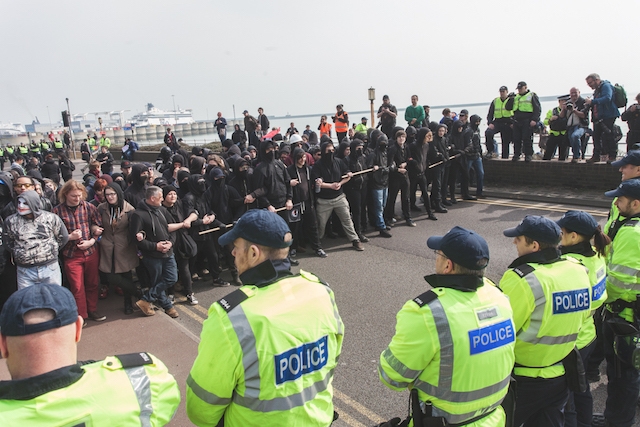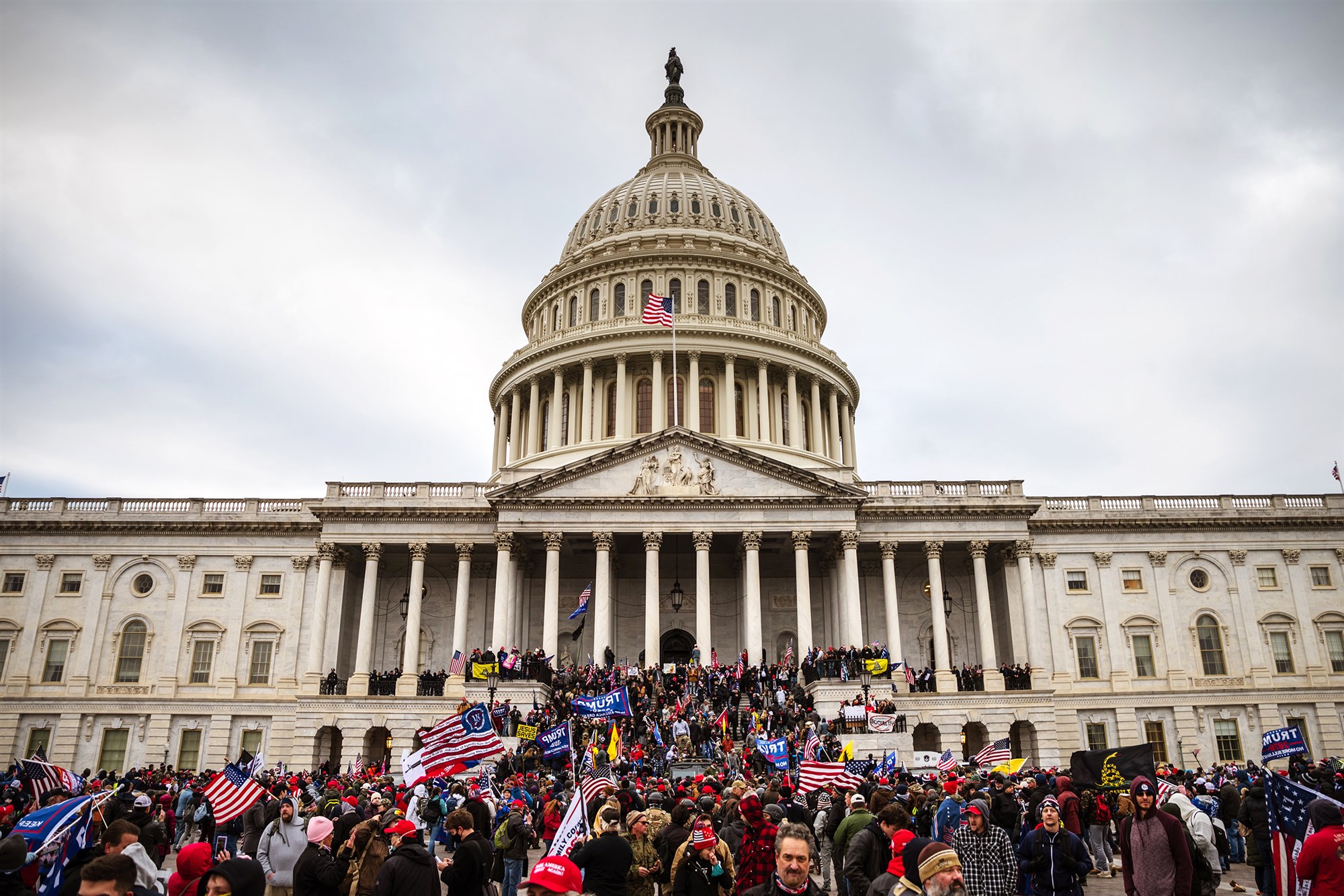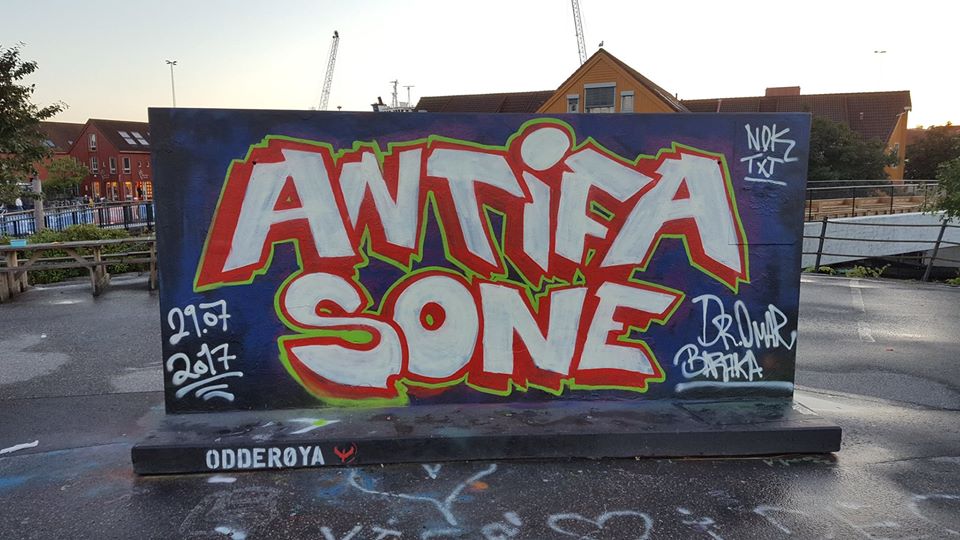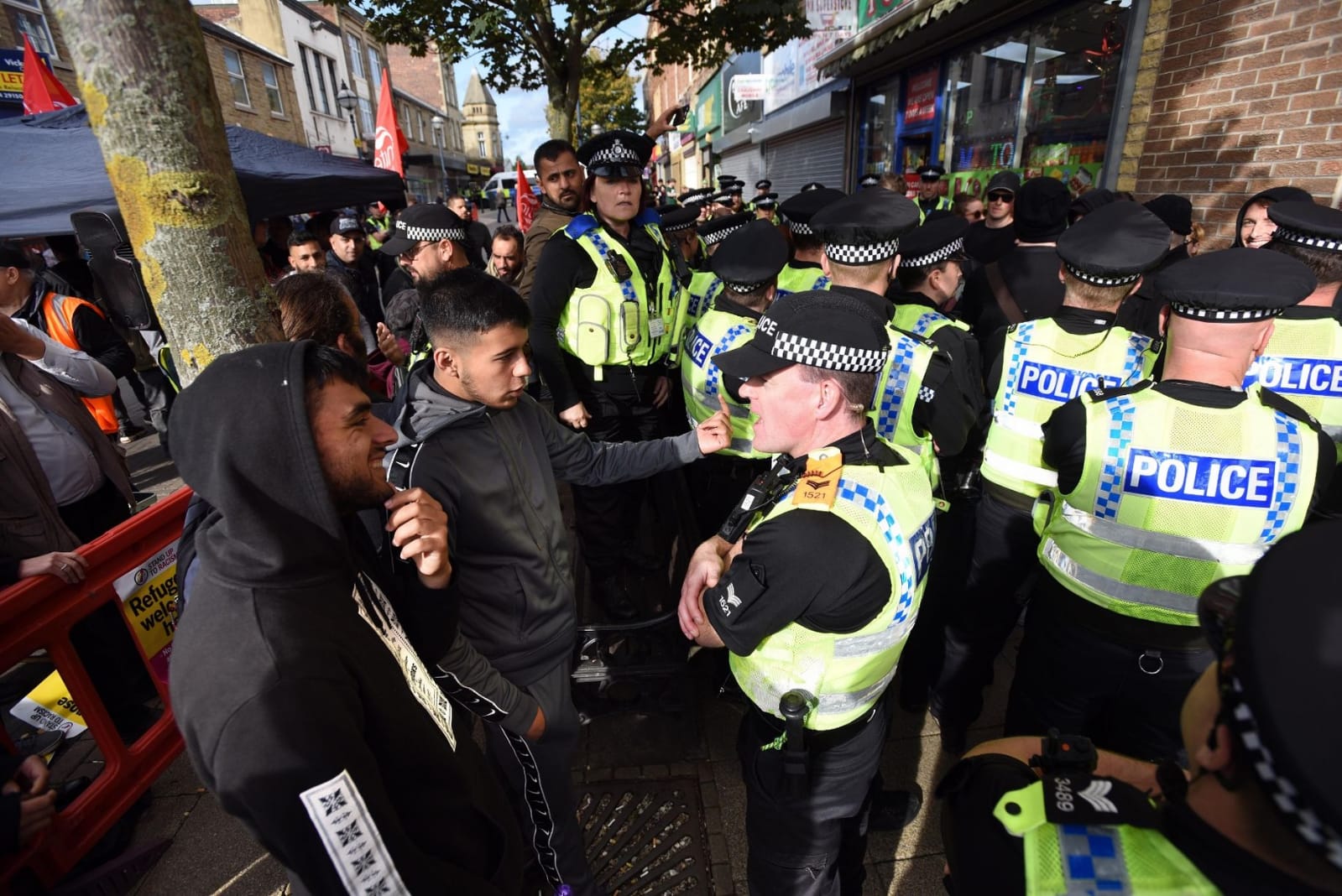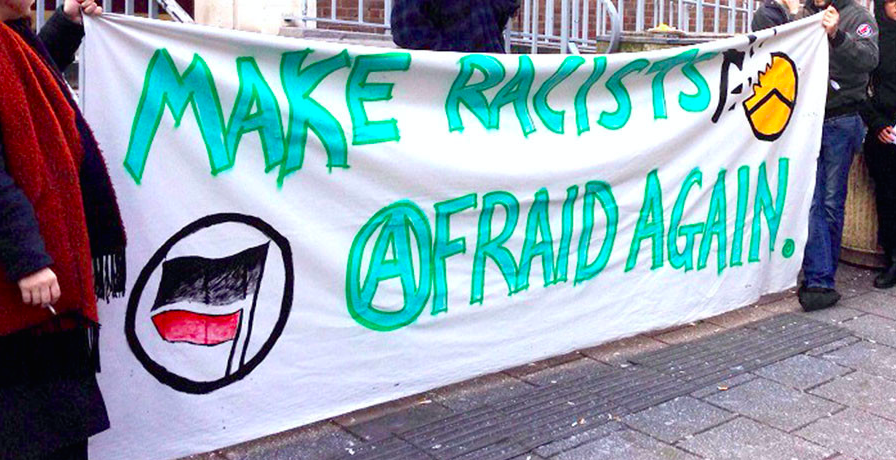Some anti-fascist comrades in Plan C.
On Sunday, UK Against Hate (UKAH), a new anti-muslim nationalist front group led by former EDL founder Tommy Robinson, brought between 1000-2000 people to a demonstration in Manchester that attempted to exploit the recent terror attacks to launch a wave of far-right street mobilisations. The anti-fascist opposition was led by Lesbians and Gays Support the Migrants (LGSM) who had originally organised a counter-demonstration to a group calling itself “Gays against Sharia”. LGSM were significantly outnumbered.
Until Sunday, it seemed as though the far-right hadn’t been able to gain momentum in the aftermath of terror attacks in the same way that they did when Lee Rigby was murdered by jihadi Islamists in 2013. The collective class response in the aftermath of attacks in both London and Manchester was one of solidarity and cooperation, and so it seemed like there was little opportunity for the far-right to capitalise on the violence. Now, however, there is some evidence that a resurgence of the nationalist street movement is possible.
A Vacuum on the Right
After the collapse of the EDL into warring micro-factions, there was a space in far-right street politics for a ultra-nationalist organisation that could try and challenge the mainstream from the right and gain mass support. The (now destroyed) neo-nazi coalition that brought 150 people to Dover occupied the ethno-nationalist terrain, but no far-right organisations successfully moved into populist ultra-nationalism. PEGIDA UK was Robinson’s first attempt to fill the gap, but it fell apart after a few small mobilisations, having failed to appeal to the ‘respectable’ middle classes.
Now, circumstances have changed. Three terrorist attacks and a state of almost-emergency have coincided with a shift in the balance of power within bourgeois democracy. For the first time since 2015, the integration of far-right politics into parliament has been interrupted. This has happened in three ways. First, the rapid move to the right by the Conservative party led to a disastrous general election result. May’s authoritarian nationalism proved unpopular, the Conservatives lost their majority, and divisions within the party have sharpened over Brexit and austerity. Secondly, the right outside the Conservative party is also in crisis. UKIP has imploded, with its vote share collapsing from 12% in 2015 to 1.8% in 2017. Third, this disarray amongst the parliamentary right means that it looks likely that ‘traitor’ Corbyn could seize the political momentum and potentially form a government before the end of the year. The only possible alternative seems to be huge concessions from the government. Given all this, the ultra-nationalists have a clear reason to return to the streets: the election didn’t go their way, hard Brexit is increasingly unlikely, and the prospect of a Corbyn government (and the crisis of the state that would entail) introduces serious uncertainty into the parliamentary process.
This return to the streets is not a return in unprecedented numbers or strength. The demonstration on Sunday matched the numbers brought out by the EDL on over ten different occasions between 2009-2013, which they achieved by mobilising amongst sections of lower division football firms. But we beat the EDL through continuous counter-mobilisation, and then we beat the resulting fascist coalitions and micro-factions in the same way. There is no reason to think that we can’t continue to dominate any attempts to resuscitate a far-right street movement.
This isn’t to say, however, that UKAH and the EDL will prove to be identical. It is worth noting one thing straight away; rather than relying on the Mail and Express as they have done in the past, UK ultra-nationalists are now forming their own media platforms. The Rebel, a far-right new media project which recently recruited Robinson as ‘UK correspondent’, plays a role in coordinating this movement. Counter-hegemony is not only something that can be won from the left. We will have to remain actively aware of developments in their strategy and tactics.
The Next Cycle of Struggle; or, Blocking the Reactionary Right Surge
It seems likely that UKAH could continue to play the role of ultra-nationalist umbrella organisation on the right. A series of street mobilisations throughout the summer seems to be the most probable course of events. The success of those mobilisations will be, in part, down to us. We need to organise for overwhelming direct opposition as quickly as possible.
The Anti-Fascist Network will be leading the counter-mobilisation, and we urge all anti-fascists to support them in doing so. In particular, the huge sections of the class who have recently been convinced of socialist ideas need to be mobilised onto the streets. This has to be done, in part, by the structures which have recently been engaging with them as part of the Labour campaign. The anti-fascist left in CLPs and Momentum branches need to be encouraging this move. This doesn’t sit nicely with the formal role of the Labour party as ‘government in waiting’, but it needs to be done nonetheless.
The most successful counter-mobilisations in the last year have been characterised by large scale coordinated blocks willing to directly prevent fascist mobilisation. Small group activity alone won’t work against mass demonstrations in the style of the EDL. The recent defence of mass anti-fascism by George West and Alex Richardson, made as part of an ongoing debate post-Dover, seems like a good place to start. The anti-fascist movement needs to stay the course, and remain committed to mass, politicised community defence. This strategy is only going to be possible on the basis of long-term organising that develops the autonomous infrastructure required to sustain a powerful movement.

